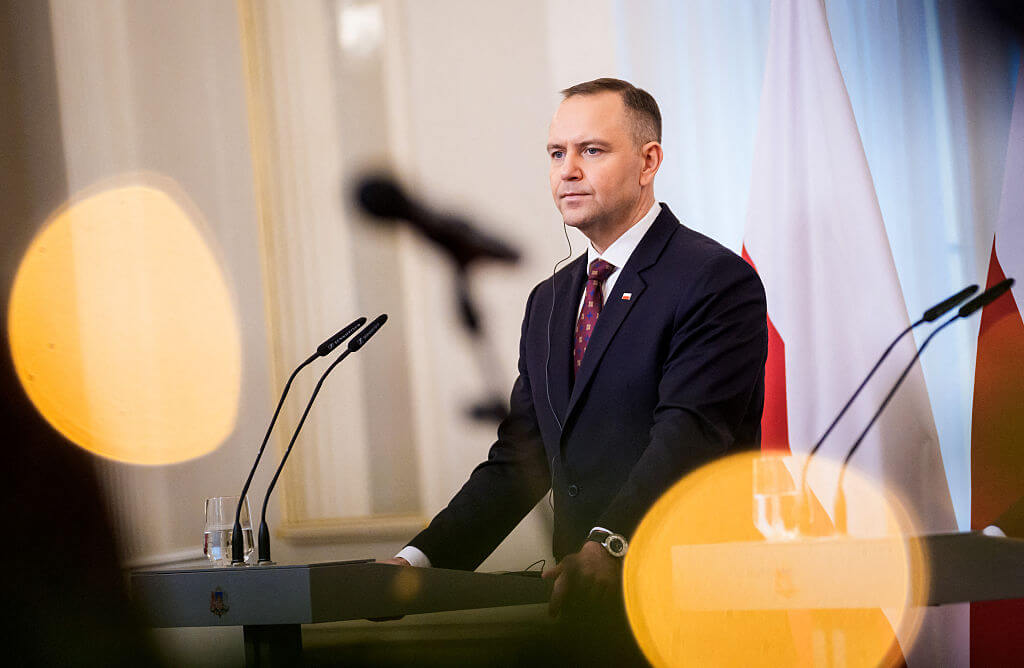As I plan my move to Israel, I fear for its future
American Jews with a connection to Israel watch the protests from afar, impassioned but powerless

Tens of thousands of Israelis attend a massive protest against the government’s judicial overhaul plan on March 11, 2023 in Tel Aviv, Israel. Photo by Amir Levy/Getty Images
“I’m going to make aliyah,” I blurted out to my rabbi four years ago in his Old City Jerusalem office, cutting through the opening small talk. My youthful exuberance broke through in a reflexive grin. My gap year in Israel was nearing its end, and I was certain I had to return permanently.
“That’s what they all say,” he said with a reluctant chuckle. “Once guys leave Israel, they usually don’t come back.”
Perhaps it was my ambition or idealism (or my stubbornness) but I knew that when I told him I was going, I meant it. “Not for me,” I decisively said. “You’ll see me here.”
Now, I’m finally making good on that promise.
This summer, I’m moving to Israel to continue my rabbinical studies — and aliyah will follow soon after. For years my enthusiasm was waived off as a “that’s-what-they-all-say” passing phase, a “just-wait-until-you-graduate-then-you’ll-see” naivete. But now, six months ahead of its realization, my Religious Zionist dream is clouded by reality’s destructive truth that, come August 2023, the Israel I return to may not be the Israel I left.
For months, hundreds of thousands of Israelis have tirelessly protested legislation that, if passed, would effectively shackle Israel’s Supreme Court, revoking its power to check the Knesset’s governing coalition. This overhaul would, among other things, grant the governing Israeli coalition absolute control in appointing judges and would allow a simple majority of 61 Knesset members — the bare minimum needed to form a coalition — to override any Supreme Court rulings. As professor of law at Hebrew University Netta Barak-Corren explains bluntly: “The plan as a whole creates an opposite separation of powers problem, worse than the one it aims to solve.”
Termed “judicial reform,” this law is more like judicial abolition.
Less than a day after the government’s defense minister, Yoav Gallant, called to halt the legislation and allow for negotiation, citing the “clear and immediate and tangible danger to the security of the state,” Prime Minister Netanyahu fired him. With bubbling civil war and eroding national vulnerabilities, Israel has no defense minister — an unconscionable reality.
The New York Times notification that popped onto my phone shot me into a frenzy. Ignoring the dinner I prepared moments earlier, I frantically tried to act: I texted screenshots to friends and group chats, tweeted my dismay, and called anyone who would listen. After 20 minutes of panicked pacing around my apartment, I slumped into my sofa, defeated. Israel was eroding before my eyes. All I could do was post a tweet that garnered a meager four likes.
“The Land of Israel is an essential unit tied to the life of the nation,” Rabbi Abraham Isaac Kook famously writes, “bound by inner characteristics with its existence.” The Jewish people’s lifeforce, our spirited peoplehood that carried us across thousands of hopeless, despondent years and countless foreign, hostile lands, is sourced in our homeland. Our tribe is suffering — from national division, governmental imposition and political exploitation. The symptoms are clear: That heartbeat is waning.
I was always the “Israel advocate” in high school: I joined the fellowships, ran the programs, hosted the events. I always liked Israel, but it wasn’t until my gap year that I loved it. Sure, its blossoming, vibrant hilltops are striking, and I will always be enthralled by the shuk’s mass hustle on Erev Shabbos, but that’s not why I love it. My love for this land was not born from its external beauty.
My love for this land is renewed every time I see Hebrew words plastered on every sign, Jewish religious texts shelved in nearly every bookstore, and Jews sitting in a country of our own. Because then I know that God has brought us home, and we rebuilt it. Just thinking of myself living as a citizen of that country is enough to make me cry.
Over the last months, in impatient eagerness for my move, I dedicated a sizable portion of my afternoon Torah study to Israel, from interrogating biblical passages and commentaries to canvassing contemporary essays and responsa. To eavesdrop on the murmuring hearts of our past reflecting on Israel is breathtaking — and heartbreaking.
When Rambam declares that the Jewish People can only be a “kahal,” a congregation, within the Land of Israel, my eyes well with earnest tears. When Rabbi Shlomo Goren, the first head of the Military Rabbinate of the Israeli Defense Forces, imagines a government “founded on the belief in the eternality of the Torah’s laws,” my mind is lost in ephemeral possibility.
I need only think about what a country God gifted us today — Jewish and democratic, thriving with Torah and energized by a loving peoplehood — to find myself holding back choked sobs of unbound gratitude. But now I watch Israel’s prime minister compromise it all.
Family can never be abandoned. Should Netanyahu’s coalition succeed, should the government achieve absolute power, I will not desist. I will not abandon its citizens nor its Jewish and democratic ideals; I will not abandon my home. But I hope, I pray, that my determination is never needed.
Until then, I sit in Washington Heights with Twitter as my soundboard. I watch my brothers and sisters parade Israel’s streets, fighting for our country, refusing to abandon our dream, our lifeforce. I can do nothing but witness. And so, I revert to the only means I have, that our people have had for millennia. I clutch my siddur and pray to God — for a miracle, for some time, for anything.
The possibility of Israel collapsing is unthinkable. But then again, I remind myself, so was the Zionist dream.
To contact the author, email [email protected]
















